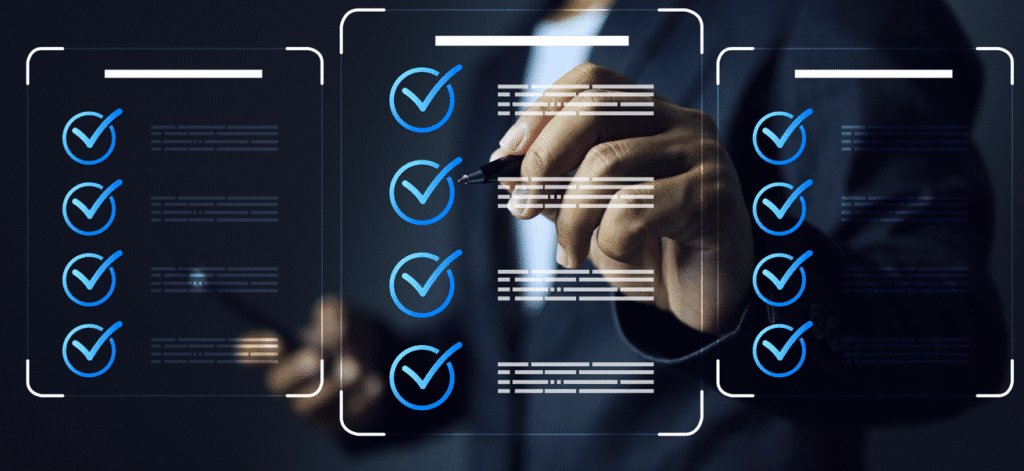In today’s digital age, safeguarding patient information is more critical than ever. With data breaches on the rise and increasing regulatory scrutiny, HIPAA has become a cornerstone for protecting sensitive health information. But HIPAA compliance is not just a regulatory checkbox—it’s a strategic advantage that builds trust, enhances security, and protects your organization from costly fines and reputational damage. Let’s dive in and discover how HIPAA compliance can strengthen your organization while ensuring the privacy of patient data.
What is HIPAA?
The Health Insurance Portability and Accountability Act (HIPAA) is a federal law in the United States designed to safeguard patient health information. HIPAA mandates that organizations handling Protected Health Information (PHI) implement security and privacy practices to ensure the confidentiality, integrity, and availability of this sensitive data. HIPAA consists of five primary rules:
- Privacy Rule – Establishes the right to control PHI and sets limits on uses and disclosures.
- Security Rule – Requires specific administrative, physical, and technical safeguards for electronic PHI (ePHI).
- Breach Notification Rule – Outlines steps that must be taken if PHI is exposed due to a breach.
- Enforcement Rule – Defines investigation procedures and penalties for HIPAA violations.
- Omnibus Rule – Updates privacy, security, and enforcement aspects, incorporating elements of the HITECH Act.
Who Needs to Be HIPAA Compliant?
Whether you’re a healthcare provider, an insurance company, or a third-party vendor, understanding the fundamentals of HIPAA compliance can make a world of difference.
HIPAA applies to “covered entities” and “business associates.”
- Covered Entities include healthcare providers (e.g., doctors, hospitals, clinics), health plans (e.g., insurance companies), and healthcare clearinghouses.
- Business Associates are third-party vendors who handle or have access to PHI on behalf of covered entities, such as IT providers, billing companies, and consultants.
Essentially, any organization handling PHI in the U.S. must comply with HIPAA regulations.
Benefits of Being HIPAA Compliant
Improved Patient Trust
Patients are increasingly concerned about the privacy of their health information. Being HIPAA-compliant demonstrates a commitment to protecting their data, fostering trust and enhancing the patient-provider relationship.
Enhanced Data Security
HIPAA compliance requires robust security practices, reducing the risk of data breaches and enhancing overall cybersecurity posture. Compliance helps prevent unauthorized access, data leaks, and other security incidents.
Avoidance of Penalties
Non-compliance can lead to severe financial and legal consequences. By adhering to HIPAA, organizations avoid fines, penalties, and potential legal actions resulting from data breaches.
The Impact of Non-Compliance
Non-compliance with HIPAA can lead to significant repercussions, including:
- Financial Penalties – Fines for HIPAA violations range from $100 to $50,000 per violation, with a maximum annual penalty of $1.5 million for each violation type.
- Legal Consequences – In addition to fines, non-compliance can result in lawsuits and civil or criminal charges.
- Damage to Reputation – A data breach can harm an organization’s reputation, erode patient trust, and result in lost business.
The cost of non-compliance far exceeds that of implementing the necessary HIPAA measures.
HIPAA Readiness Checklist
To prepare for HIPAA compliance, organizations should follow this checklist:
- Conduct a Risk Assessment
Identify and assess risks to PHI. This should include physical, administrative, and technical risks, along with steps to mitigate them. - Implement Security Measures
Ensure data encryption, access controls, and activity monitoring to protect ePHI. Administrative safeguards, such as security policies and employee training, are also required. - Appoint a HIPAA Compliance Officer
Designate a person responsible for overseeing HIPAA compliance efforts, including policy development, risk management, and breach response. - Develop Policies and Procedures
Create written policies that address all aspects of HIPAA compliance. This includes access controls, data handling, and incident response procedures. - Provide Employee Training
Train employees on HIPAA regulations and the organization’s privacy and security practices. Training should cover how to handle PHI and respond to potential breaches. - Establish a Breach Response Plan
Have a documented plan for responding to data breaches, including steps for reporting, investigation, and communication with affected individuals. - Ensure Business Associate Agreements (BAAs)
For any third-party vendor that handles PHI, ensure a BAA is in place. These agreements clarify each party’s responsibilities for protecting PHI. - Perform Regular Audits and Reviews
Regularly review security practices and update policies to align with evolving HIPAA requirements and technological advancements.
Conclusion
HIPAA compliance is essential for organizations that handle PHI. Not only does it help avoid significant financial and legal penalties, but it also enhances security, builds trust with patients, and improves the organization’s overall reputation. While HIPAA compliance can seem daunting, following a structured approach, such as the readiness checklist outlined above, can make it more manageable.
Achieving and maintaining HIPAA compliance is an ongoing process that requires regular review, employee training, and updates to security practices. Ultimately, it’s an investment in data protection that benefits both the organization and its patients.
For businesses handling PHI, HIPAA compliance isn’t just a regulatory requirement – it’s a commitment to safeguarding the privacy and security of patient information.
Need more info?
We are here to help.
Our experts will identify strategies to close compliance gaps and safeguard your systems.
At Cyntry, simplifying the compliance journey and strengthening your security posture is what we do best.
Book a no-cost 30-minute compliance strategy session at Cyntry.com.



